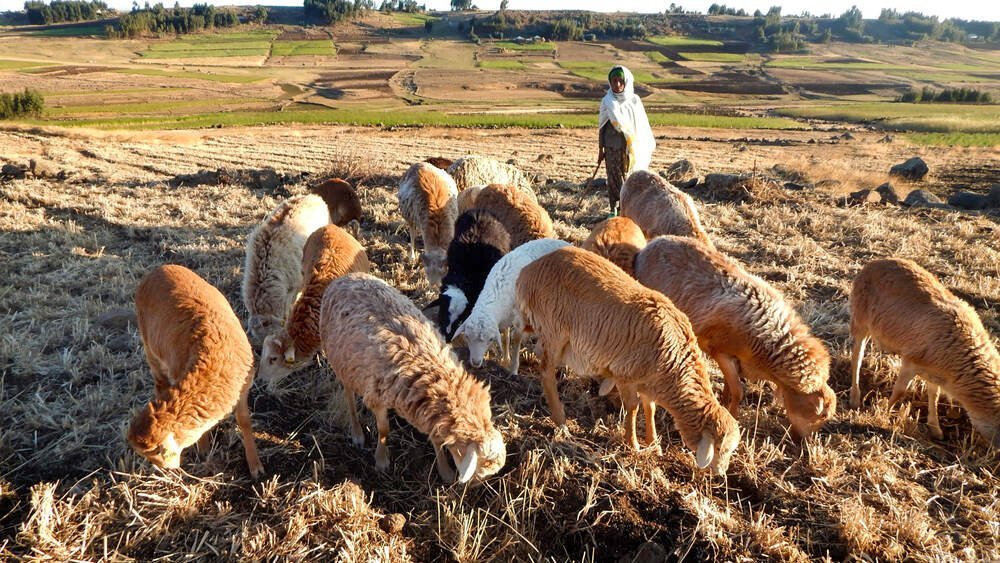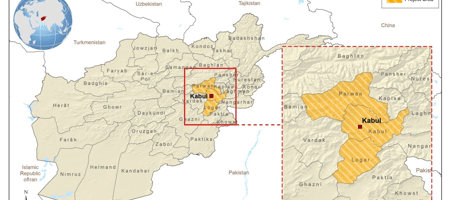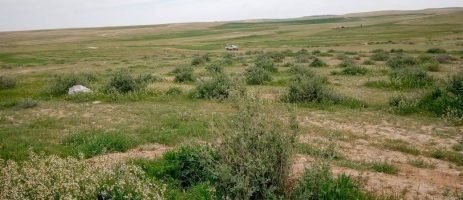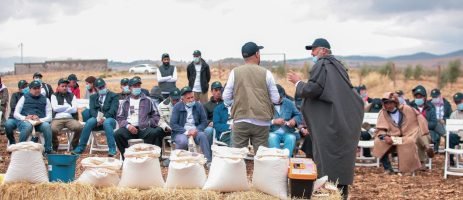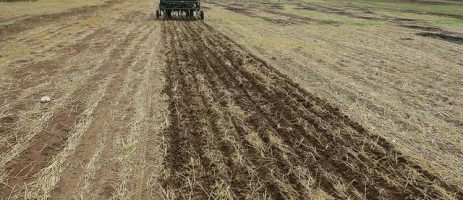Nurturing Livestock and Land: Sustainable Agrosilvopastoral
Approaches
In 2022 ICARDA’s research on sustainable agrosilvopastoral systems continued to further enhance livestock and land productivity, protect the environment from unsustainable practices such as overgrazing and monocropping, and build community resilience to climate change across the fragile dryland environments.
Other challenges our work tackles include desertification, rises in animal feed prices, inadequate knowledge of sheep and goat production in many countries, and limited access to quality breeding animals.
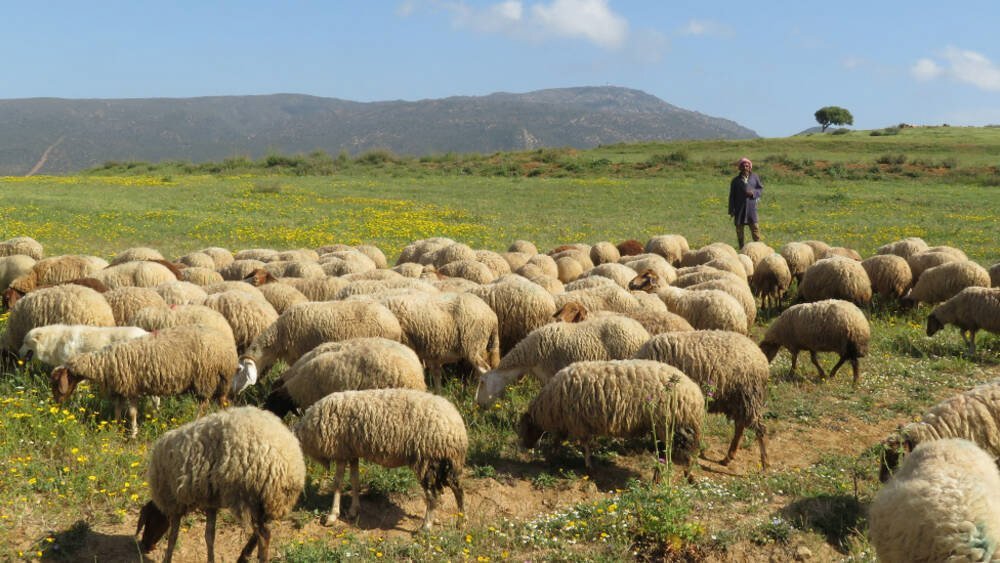
Old knowledge plus new techniques = healthy rangelands
In Tunisia, ICARDA helps communities restore rangelands by re-establishing community-based traditional land management practices and combining them with precise calculations of how many animals can graze, for how long, and where. Depending on precipitation level and vegetation health, some areas are left ungrazed to allow recovery.
In Jordan, ICARDA and its partners are bringing a barren wasteland to life by fusing traditional ‘Marab’ techniques to capture and use the sporadic rainfall, with our new technologies. The technique deploys a mix of water harvesting pits, limited grazing, and the careful replanting of native rangeland species alongside satellite observation and digital soil analysis tools to identify optimal locations. In just six years, vegetation cover is flourishing, birds and pollinators have returned, and soil erosion has been dramatically reduced along with dependence on expensive animal feed from external suppliers.
ICARDAs Agro-SilvoPastoral Systems
Community solutions to boost livestock productivity
ICARDA’s flagship innovation Community-Based Breeding Programs (CBBPS) are flourishing. 146 sheep and goat breeding programs are now being managed by smallholder communities. More than half are already registered as formal cooperatives with certified sires. The programs are supported by data collection on animal performance, health, and feeding entered into a smartphone app. To support sire selection, there is also training on selection and evaluation, reproductive delivery technologies, feeding, health, and marketing. The projects have significantly boosted livestock productivity and improved livelihoods.
More feed
at a lower cost
Feed commonly accounts for two-thirds of livestock costs, and prices are spiraling. In 2022, ICARDA continued to introduce forage crops into farming approaches. Cereals, legumes, grasses, shrubs, and even spineless cactus increase feed availability throughout the year, reducing costs, improving livestock health, and relieving grazing pressure on rangelands.
In Tunisia, ICARDA is also developing animal feed from commonly discarded farm ‘waste’ like olive residues, cactus peels, date waste, and wheat bran. The waste is combined with legumes, urea, and vitamin and mineral supplements and pressed into feed pellets, providing a cheap nutritional boost to animal nutrition.

Women take the lead - with or without support
As men increasingly migrate to cities in search of better opportunities, around 45% of farm workers in the region are now women. Ensuring that these women, as well as young people, are specifically considered when developing agricultural innovations is a critical part of ICARDA’s approach and has resulted in new enterprises such as beekeeping and sheep fattening.




